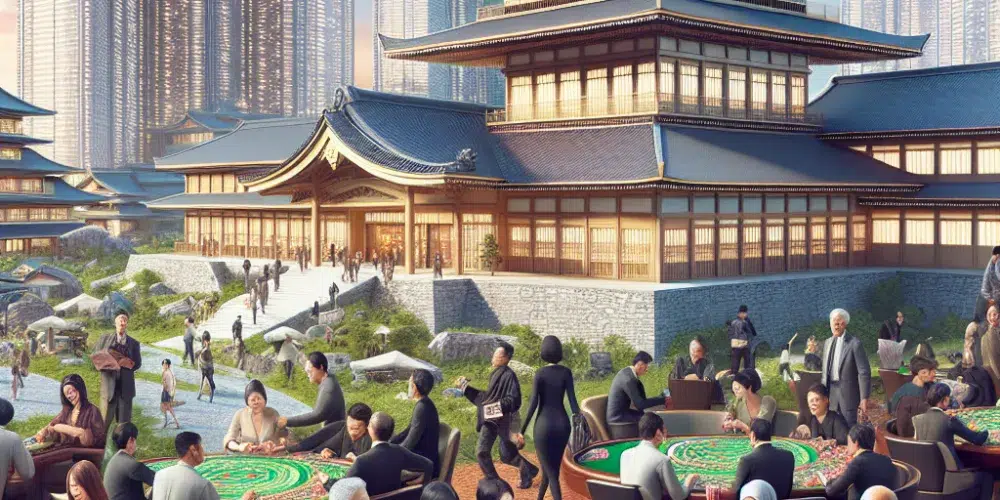The Japanese government officially green-lighted the construction of its first-ever integrated resort (IR) casino in Yokohama, marking a monumental shift in the nation’s long-standing stance against gambling. This development is poised to transform the landscape of tourism and gaming in Japan, drawing both enthusiasm and scrutiny from various sectors.
Scheduled for completion in 2027, the Yokohama IR will be a sprawling complex featuring not only a casino but also hotels, conference rooms, shops, restaurants, and entertainment facilities. This ambitious project aims to boost tourism, create jobs, and generate significant economic benefits for the region. The government projects that the IR could attract millions of foreign visitors and generate over $5 billion in annual revenue, significantly impacting Japan’s economy.
The decision to introduce casino gambling in Japan was driven by the success of similar establishments in Macau, Singapore, and Las Vegas, which have demonstrated substantial boosts in tourism and revenue. Advocates for the IR project in Yokohama argue that it will serve a similar purpose, especially in revitalizing the local economy and promoting international tourism following the downturn caused by the COVID-19 pandemic.
However, the decision has not come without controversy. Opponents are concerned about the potential for increased gambling addiction, crime, and erosion of community values. In response, the Japanese government has outlined strict regulations governing the operation of casinos. These include limitations on the size of the gambling area, restrictions on the number of visits by Japanese citizens to the casinos, and robust systems for monitoring and addressing gambling addiction.
Additionally, the IR is expected to incorporate advanced technology and sustainability practices. Plans include the use of renewable energy sources, state-of-the-art waste management systems, and digital security technologies to ensure the safety and sustainability of the operation.
The Yokohama project is the spearhead of Japan’s IR initiative, with other cities like Osaka and Nagasaki also planning similar developments. Each IR is expected to uniquely reflect its local culture and attractions, thereby not only enhancing visitors’ gaming experience but also enriching their cultural exposure to Japan.
International gaming and hospitality companies are keenly observing progress, with many considering partnerships and investments. Industry giants such as MGM Resorts and Las Vegas Sands have expressed interest in participating in what may soon be a burgeoning market, potentially rivaling established gaming hubs.
As the Yokohama IR takes shape, all eyes will be on its impact — economic, social, and cultural. This groundbreaking project represents a significant gamble by the Japanese government, betting on the casino’s ability to strike a balance between profit and responsibility. Meanwhile, the global gaming industry watches eagerly, ready to witness the potential transformation of Japan into Asia’s next major gaming destination.



